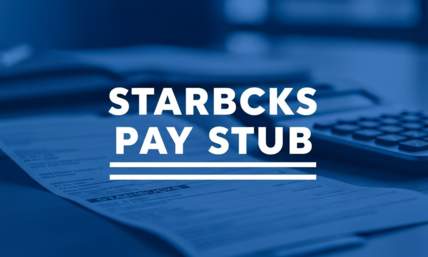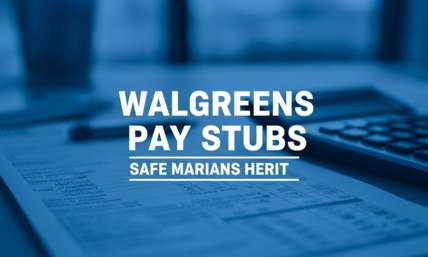What Should I Do If My Employer Won’t Provide A Pay Stub?
Pay stubs are among the financial documents people need to make major purchases or take out much-needed loans. They’re pretty simple in appearance, often half a page long and states one’s gross wage and taxes. Employers provide them every pay period, alongside the actual pay, so they’re relatively easy to get aplenty.
However, employers are currently under no legal obligation to provide pay stubs to employees. Some employers may do for transparency’s sake, but the others that don’t won’t be in too much trouble. As most creditors prefer pay stubs over other financial documents, people can face an uphill battle in buying what they need.
There are many processes that your business can automate, producing pay stubs could be one of them.
If your employer doesn’t provide a pay stub every payday, don’t panic. This complete guide will discuss the specific legality of providing pay stubs and the steps to take if you don’t get one.
Pay stubs are mandatory
Maintaining an accurate record of wages paid is one of the primary aspects of the Fair Labour Standards Act (FLSA), which has been in place since 1938. Under the law, by any preferred means, employers must keep information on employees’ pay, some of which include these:
-
Base rate of a worker’s wage (e.g., “USD$10 per hour,” “USD$250 a week”)
-
Total working hours per week
-
Total straight-time earnings
-
Any additions or deductions
The FLSA mandates that payroll records be preserved for at least three years, with time cards and other relevant documents at least two years. This arrangement allows the government to scrutinize employers if they’re paying their people right.
Despite this requirement, the FLSA doesn’t get into the specifics of the type of record-keeping that’s acceptable. The law leaves employers with the choice of medium as long as they report accurate wage information. It doesn’t even mandate that employers should produce pay stubs.
Legislators have attempted to make pay stubs mandatory on a federal level. In 2019, H.R. 3712, the Wage Theft Prevention and Wage Recovery Act, was introduced to Congress, which would amend the FLSA to require employers to provide pay stubs. As of this writing, however, the bill has yet to be reviewed by a committee. Other than this, no federal law currently exists.
The lack of a federal law made some states enact their own legislation on providing pay stubs. In this case, checking the state where you’re working is the first step.

Pay stub requirements by state
Fortunately, you’re more likely to work in a state that requires employers to provide pay stubs than in one that doesn’t. Right now, only these nine states have no relevant legislation in place:
-
Alabama
-
Arkansas
-
Florida
-
Georgia
-
Mississippi
-
Ohio
-
South Dakota

Among these states, Ohio may have been the farthest to push its pay stub legislation. H.B. 187, with bipartisan cosponsors, is currently under review by a state senate committee. If you’re in one of these, you’re more likely to get your pay stub as part of a collective bargaining agreement (CBA) between the employer and employee union.
The remaining states fall under one of four categories: access states, access/print states, opt-out states, and opt-in states. They all require the provision of pay stubs, though in unique ways. Here’s how each state differs:
Access state: States that decree entry-level requirements for providing pay stubs are known as access states. It’s up to the employer to provide a print or electronic copy, as long as it has pay stubs to give to its workers. There are 26 access states as of the moment:
- Alaska
- Arizona
- Idaho
- Illinois
- Indiana
- Kansas
- Kentucky
- Maryland
- Michigan
- Missouri
- Montana
- Nebraska
- Nevada
- New Hampshire
- New Jersey
- New York
- North Dakota
- Oklahoma
- Pennsylvania
- Rhode Island
- South Carolina
- Utah
- Virginia
- West Virginia
- Wisconsin
- Wyoming
Access/print state: These states have laws requiring employers to furnish print or written copies of pay stubs, though not necessarily required to produce them every month. Should employers choose to issue electronic copies, they should have the ability to print them. Right now, there are 11 access/print states:
- California
- Colorado
- Connecticut
- Iowa
- Maine
- Massachusetts
- New Mexico
- North Carolina
- Texas
- Vermont
- Washington

While not technically a state, Washington, D.C. pay stub legislation is access/print in nature.
-
Opt-out states: These states require employers to get their employees’ consent to provide them electronic pay stubs. If the latter elects to return to receiving printed copies, they must be allowed to do so. Only Delaware, Minnesota, and Oregon are opt-out states.
-
Opt-in states: This setup currently applies to only one state—Hawaii. It’s a reverse version of the opt-out state, where employee consent is required before the employer can implement a paperless pay stub system. Otherwise, the employer must continue producing printed pay stubs.
As previously explained, be it under a CBA or state law, you mostly have a right to your pay stub. If an employer refuses to produce one when you need it, you can file a formal complaint with the state’s labour agency. Filing a lawsuit is also another possible approach.
Making Your Own
Some circumstances don’t allow for a protracted legal battle. For instance, you desperately need to take out a loan but lack pay stubs to do so. Producing your own pay stubs with online services is a viable approach, albeit not without its risks. There will be critical points that will need to be covered if you are to achieve efficient pay stub processing within your business.

A paystub generator is designed for freelancers and independent contractors, as they typically don’t have a fixed employer like regular employees. Instead of payroll staff, the freelancers or contractors themselves provide wage and tax information. The generator then creates a soft copy of the completed pay stub and sends it to the user after paying a fee.
Convenience is the main selling point of these services, especially to its target audience. As long as the information is accurate enough, creating your own pay stubs is within the bounds of the law and acceptable for various uses.
However, ensuring accuracy is also a downside, namely if you’re not used to calculating wages and taxes. If the information in the pay stub doesn’t check out with other credentials under your name, you can be suspected of bank fraud. As you know, the law won’t be lenient with fraudsters as they can cause irreparable harm to the economy.
Contrary to popular belief, you can’t work your way around providing figures with estimates. A pay stub with an unusual number of zeroes is one of several signs of forgery; wrong maths only adds to the suspicion. In this case, the user will be held liable for the inaccurate information, not the paystub generator.
Pay Stub Alternatives
Pay stubs may be the most preferred proof of income, but it’s not the only valid one. Over the years, people have been urging creditors—especially landlords—to accept other documents. If pay stubs are impossible in your case, consider producing any or all of the following:
- Form W-2: Internal Revenue Service (IRS) forms provide as much information on wages and taxes as pay stubs, with the added benefit of security. For example, a Form W-2 can only be produced under supervision by the IRS and filled out and mailed by the employer. As it’s a federal document, an employer should provide a copy, printed or electronic regardless.
- Form 1099: Whereas Form W-2 is issued to full-time employees, Form 1099 is for freelancers and independent contractors. It shows as much wage and tax information but has plenty of variants depending on the source of income. The most widely-used of these are Form 1099-MISC and Form 1099-NEC.
- CPA-verified statement: As a Certified Public Accountant’s (CPA) line of work involves auditing, having them draft and certify a financial statement is a good move. This document contains a person’s budget, expense reports, accounts payable, and even the CPA’s assessment of the matter. A professionals take on one’s finances is rather difficult to dispute.
- Bank statements: If you transact with your bank a lot, you can ask for a bank statement. This document enumerates all transactions you’ve made, whether making deposits or paying dues, in a specific period. Showing that you make consistent deposits or have a considerable sum saved up can help establish your financial state.
- Letter from the employer: A letter proving that you’re working for this employer is a valid document, though not having as much leverage as the other examples. But it does become essential for those working in restaurants, where workers can receive tips. Pay stubs don’t usually report such irregular sources of income.
- Freelancing contracts: Freelancers and independent contractors should make an effort to secure written contracts as proof of income. As these people often work for multiple clients, it’s sensible to have more than one contract on hand.

Also read: What are the Secure Electronic Delivery Methods Of W2 and 1099 Forms?
Conclusion
Unless you’re a freelancer, you’ll receive your pay stub one way or the other, even without any federal law in place. If it applies to you, be aware of your right to get one. They can make many transactions go much smoother.
If you want to know more on how you can better manage payroll in your business then please read our previous article.















